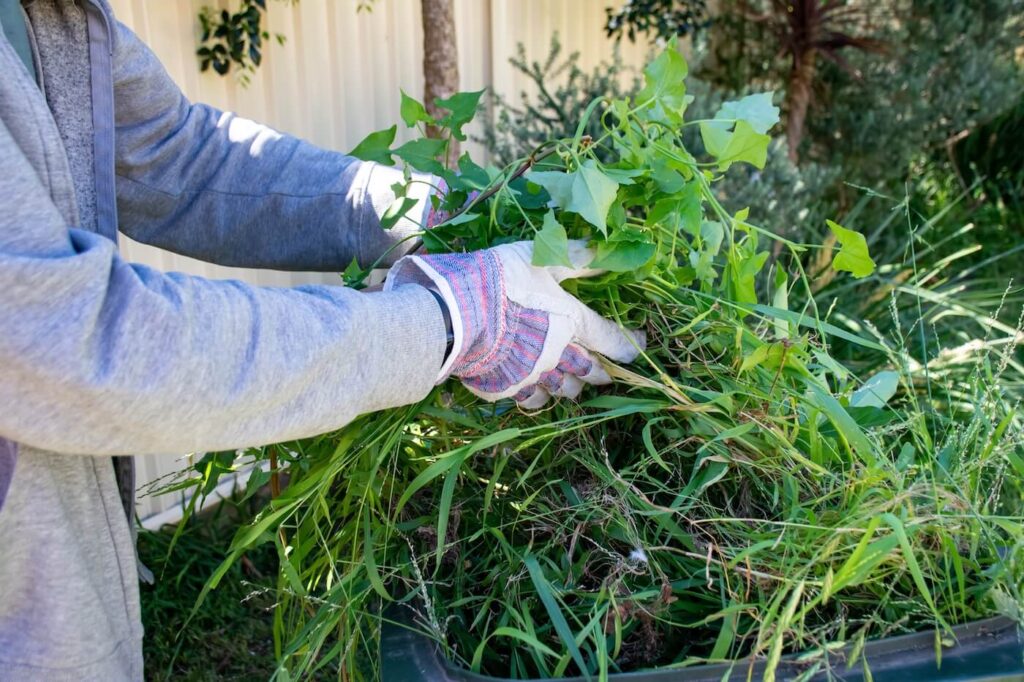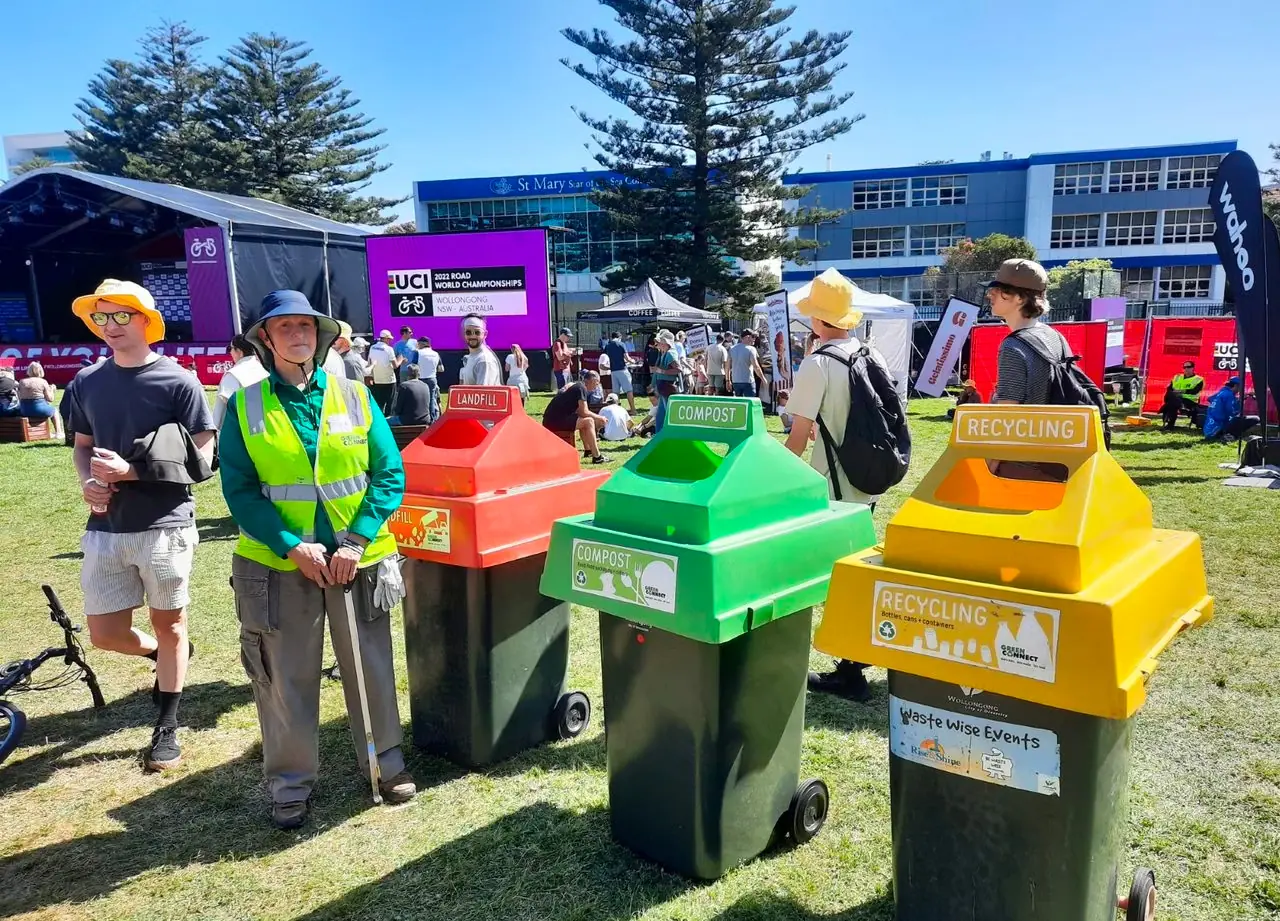Garden Waste Removal in Sydney and the Ethics of Resource Recovery
Garden waste removal Sydney is more than just a disposal process—it embodies a strong commitment to environmental stewardship and community responsibility. Across the city, from suburban gardens to commercial landscapes, ethical approaches to garden waste removal in Sydney play a vital role in shaping responsible resource recovery practices.
Responsible garden waste removal Sydney practices have become essential for protecting the city’s natural environment while supporting public health. The way organic materials such as grass clippings, pruned branches, and fallen leaves are managed directly influences greenhouse gas emissions, soil quality, and long-term resource conservation efforts.
Three major legislative frameworks guide these sustainable practices:
- Protection of the Environment Operations Act 1997 – establishes core waste management principles
- Protection of the Environment Operations (Waste) Regulation 2014 – defines licensing and operational standards
- Waste Avoidance and Resource Recovery Act 2001 – promotes circular economy approaches
These regulations form the foundation for ethical resource recovery ethics in waste management NSW, ensuring garden waste transforms from a disposal problem into a valuable resource.

What Are the Key Regulations Governing Garden Waste Removal in Sydney?
There are three main pieces of legislation in New South Wales (NSW) that govern garden waste removal in Sydney. These laws ensure that garden waste is managed in an ethical and environmentally-friendly manner.
1. Protection of the Environment Operations Act 1997 (POEO Act)
The POEO Act is the primary law for protecting the environment in NSW. It defines what waste is and sets out requirements for how all waste handlers must manage it.
The POEO Act holds accountable anyone who collects, transports, or processes garden waste. Service providers must understand their responsibilities under this law, which includes penalties for improper waste handling and the need for environmental protection licenses. Garden waste is included in the Act’s broad definition of waste, meaning all removal services must follow its rules regardless of how big or small their operations are.
2. Protection of the Environment Operations (Waste) Regulation 2014
The Waste Regulation works alongside the POEO Act by specifying licensing thresholds and operational requirements.
Waste management services that handle large amounts of garden waste are required to have environmental protection licenses. The regulation outlines:
- Specific volume thresholds that trigger licensing requirements
- Waste levy obligations for materials sent to landfill
- Record-keeping and reporting duties for licensed operators
- Quality standards for waste processing facilities
3. Waste Avoidance and Resource Recovery Act 2001
The Waste Avoidance and Resource Recovery Act focuses on reducing waste rather than just complying with regulations. This law encourages waste management services to prioritise finding ways to recover resources instead of simply disposing of them.
For garden waste, the Act promotes:
- Development of programs that turn green waste into valuable products
- Investment in processing infrastructure for organic materials
- Education initiatives that help residents reduce their generation of garden waste
- Partnerships between local councils, businesses, and community groups
These three pieces of legislation work together to create a comprehensive framework ensuring that garden waste removal services operate ethically, transparently, and with environmental protection as a core objective.
Service providers must navigate all three laws to maintain legal compliance while also supporting Sydney’s broader sustainability goals.
How Do Resource Recovery Centers Support Ethical Garden Waste Management?
Resource recovery centers play a crucial role in ethical garden waste disposal Sydney operations. Instead of letting organic materials become harmful to the environment, these centres turn them into valuable resources. The Kimbriki Resource Recovery Centre, located in Terrey Hills on Sydney’s Northern Beaches, is a prime example of this method. They accept green waste and process it using specialized facilities that prioritise protecting the environment and maintaining the quality of materials.
Strict Acceptance Criteria for Green Waste Recycling
To ensure the success of their green waste recycling programs, resource recovery centers have strict rules about what they will accept. They give priority to clean, uncontaminated garden materials, while rejecting items mixed with general waste, treated timber, or non-organic materials. This careful selection process guarantees that the final compost and mulch products meet Australian Standards, making them safe for use in agriculture and residential areas.
Quality Control Measures at Resource Recovery Centers
Resource recovery centers implement various quality control measures to maintain the integrity of their operations:
- Visual inspection of incoming loads to identify contaminants
- Separation of different types of organic materials for optimal processing
- Temperature monitoring during composting to ensure proper decomposition
- Regular testing of finished products for nutrient content and safety
Environmental Benefits of Properly Processed Garden Waste
The environmental benefits of using resource recovery centers go beyond simply diverting waste from landfills. When garden waste is processed correctly at these facilities, it becomes nutrient-rich compost that can replace synthetic fertilizers. This reduction in chemical runoff into waterways is crucial for protecting aquatic ecosystems. Additionally, the mulch produced from garden waste helps retain soil moisture, reducing the need for irrigation during dry periods in Sydney.
Reducing Methane Emissions through Landfill Diversion
By choosing resource recovery centers instead of sending their garden waste to landfills, residents and businesses can actively contribute to reducing methane emissions. For every tonne of garden waste diverted from landfill, approximately 0.5 tonnes of CO2-equivalent greenhouse gases are prevented from entering the atmosphere. This reduction in greenhouse gas emissions aligns with Sydney’s goals for sustainable resource management and supports local environmental initiatives.
Moreover, the recycled products generated from resource recovery centers also find their way back into local gardens, parks, and agricultural operations. This closed-loop system not only strengthens Sydney’s commitment to sustainability but also fosters a sense of community by promoting the use of recycled materials in landscaping and farming practices.
Why Is Diverting Garden Waste from Landfill Important Ethically?
Diverting garden waste from landfill prevents significant greenhouse gas emissions produced by landfill sites when organic materials decompose without oxygen. When garden clippings, leaves, and branches break down in landfill conditions, they release methane—a greenhouse gas 25 times more potent than carbon dioxide over a 100-year period.
The environmental impact of garden waste in landfills goes beyond emissions. Valuable organic nutrients become trapped in sealed environments instead of replenishing soil ecosystems. This one-way disposal method goes against natural processes where organic matter enriches the earth and supports new growth.
Ethical responsibility demands better treatment of organic resources. Garden waste represents living material that once absorbed carbon dioxide, provided habitat, and contributed to local ecosystems. Sending this material to landfill wastes its potential while actively harming the environment through methane production and lost nutrient cycling opportunities.
The composting benefits show the positive alternative to landfill disposal:
- Soil enrichment: High-quality compost improves soil structure, water retention, and nutrient content
- Chemical reduction: Gardens using compost require fewer synthetic fertilizers, reducing agricultural pollution
- Carbon sequestration: Compost helps soil store carbon instead of releasing it as methane
- Resource conservation: Recycled organic matter replaces mined or manufactured soil amendments
The ethical case for Garden Waste Removal in Sydney and the Ethics of Resource Recovery focuses on recognising organic waste as a resource rather than rubbish. Each tonne of garden waste diverted from landfill prevents approximately 0.5 tonnes of CO₂-equivalent emissions while creating valuable soil amendments.
Sydney residents choosing ethical disposal methods actively participate in climate change mitigation. This choice transforms what many consider waste into a regenerative resource that builds healthier soils, reduces reliance on chemical inputs, and closes the loop on organic material flows within urban environments.
How Does Ethical Garden Waste Removal Align with a Circular Economy?
Ethical garden waste removal is a key part of circular economy initiatives in Sydney. It takes organic materials and turns them into valuable resources instead of throwing them away. This method keeps nutrients and materials in circulation, creating ongoing value while reducing harm to the environment.
The circular economy model challenges the traditional linear “take-make-dispose” pattern that has dominated waste management for decades. When garden waste enters this regenerative system, it becomes feedstock for compost production, mulch manufacturing, or biomass energy generation. Each tonne of green waste processed through responsible disposal channels prevents valuable organic matter from degrading in landfills while simultaneously creating products that support local agriculture and landscaping industries.
Sustainable waste management practices in Sydney demonstrate circular economy principles through closed-loop systems. Grass clippings, pruned branches, and fallen leaves collected from residential properties undergo processing at resource recovery facilities. The resulting compost returns to gardens, parks, and farms, enriching soil and reducing demand for synthetic fertilizers. This regenerative cycle exemplifies how responsible recycling practices can create economic value while protecting natural resources.
Ethical waste services provided by Sydney companies play a crucial role in maintaining these circular systems by:
- Ensuring proper segregation of garden waste from contaminated materials
- Partnering with certified processing facilities that meet environmental standards
- Tracking waste streams to verify materials reach appropriate recovery destinations
- Educating customers about the environmental and economic benefits of proper disposal
- Investing in technologies that maximize resource recovery rates
The economic benefits extend beyond environmental protection. Businesses specializing in compost production, soil amendment manufacturing, and organic fertilizer development create employment opportunities while meeting growing demand for sustainable gardening products. This demonstrates how circular economy models in Sydney can drive both ecological and economic prosperity.

What Responsibilities Do Waste Management Services Have Regarding Ethics in Garden Waste Removal?
Service providers must maintain accountability by adhering to environmental laws and ethical standards throughout every stage of handling garden materials. This obligation begins at collection and extends through transportation, processing, and final product distribution.
Licensed operators bear responsibility for verifying that collected garden waste reaches authorized resource recovery facilities rather than illegal dumping sites. The Protection of the Environment Operations Act 1997 requires waste transporters to maintain documentation proving proper disposal.
In addition to legal obligations, there’s also a pressing need for ethical considerations in waste management. Ethical garden waste removal services not only comply with regulations but also prioritize sustainability by minimizing landfill use, promoting recycling, and supporting local economies through responsible resource recovery practices.
Conclusion
How can Sydney residents and businesses contribute to ethical garden waste management?
Active participation in responsible disposal garden waste programs forms the foundation of sustainable waste management in Sydney. Residents should prioritise their local council’s kerbside collection programs, which connect directly to circular economy Sydney initiatives through regulated processing channels.
Businesses and households can strengthen ethics in resource recovery NSW by:
- Choosing ethical waste services Sydney with verified environmental credentials
- Self-delivering materials to facilities like Kimbriki Resource Recovery Centre
- Verifying contractors follow responsible recycling practices
- Separating garden waste from general rubbish to maximise recovery rates
Sustainable garden waste removal Sydney requires collective commitment. Every load diverted from landfill reduces methane emissions whilst creating valuable compost and mulch products. This circular approach transforms organic waste into resources that enrich local soils and reduce dependence on synthetic fertilisers.
Ready to make an ethical choice? Contact licensed garden waste removal services in Sydney today or locate your nearest resource recovery facility to start contributing to a truly sustainable waste management system.
More about: How Tree Removal Services in Sydney Navigate Safety and Sustainability
FAQs About Ethical Garden Waste Removal in Sydney
Ethical garden waste removal Sydney refers to managing organic materials—like branches, leaves, and grass clippings—in ways that protect the environment and support the community. Instead of sending waste to landfill, it focuses on recycling, composting, and resource recovery.
Proper garden waste removal Sydney prevents organic matter from decomposing in landfills, where it produces methane—a potent greenhouse gas. Recycling and composting instead turn garden waste into valuable soil products that improve soil health and reduce emissions.
Three key legislations guide ethical garden waste removal in Sydney:
Protection of the Environment Operations Act 1997
Protection of the Environment Operations (Waste) Regulation 2014
Waste Avoidance and Resource Recovery Act 2001
These frameworks ensure waste is processed safely and responsibly, promoting sustainability across NSW.
Sydney’s resource recovery centres, such as Kimbriki, accept clean garden materials and convert them into compost and mulch. Their strict acceptance criteria, temperature monitoring, and quality testing ensure waste is recycled efficiently and meets environmental standards.
Using garden waste recycling services in Sydney reduces landfill waste, lowers methane emissions, and produces nutrient-rich compost that replaces synthetic fertilisers. This improves soil health and supports sustainable landscaping and agriculture.
Ethical garden waste removal Sydney turns organic waste into resources reused within the local ecosystem. Compost and mulch made from green waste return to gardens, farms, and parks—creating a closed-loop system that reduces waste and supports local businesses.
Licensed garden waste removal Sydney providers must ensure collected materials reach authorised recycling or composting facilities. They are legally required to maintain proper documentation and operate in compliance with NSW environmental protection standards.
Residents can use council kerbside green waste collections or deliver waste directly to resource recovery centres. Businesses should choose licensed, eco-certified garden waste removal Sydney services that prioritise recycling and sustainable disposal.
Illegal dumping or sending garden waste to landfill can lead to fines, soil contamination, and increased greenhouse gas emissions. It also wastes valuable organic materials that could otherwise be recycled into compost or mulch.
By reducing landfill dependency, promoting composting, and supporting circular resource systems, ethical garden waste removal Sydney helps achieve the city’s sustainability objectives—improving soil quality, cutting emissions, and protecting biodiversity.

